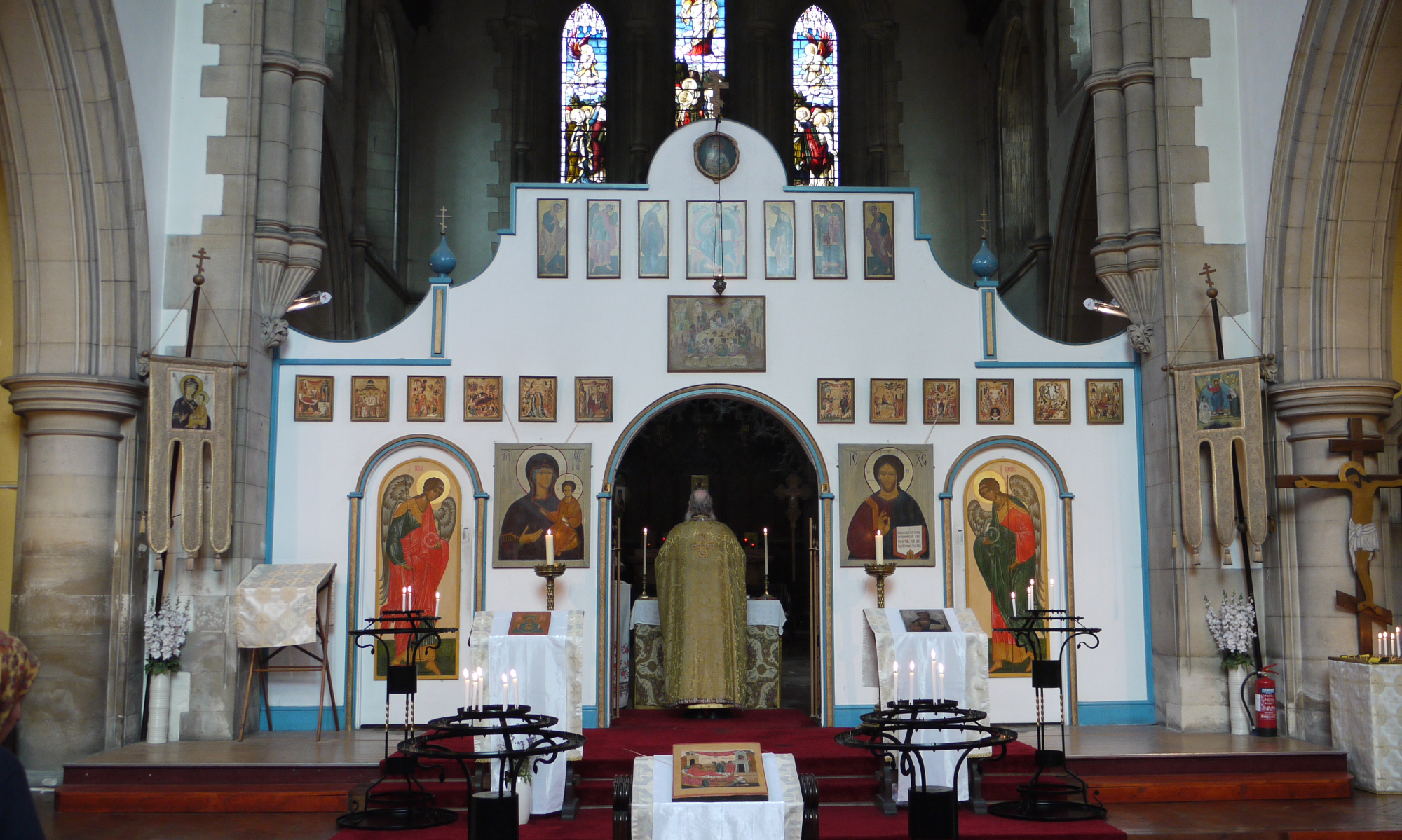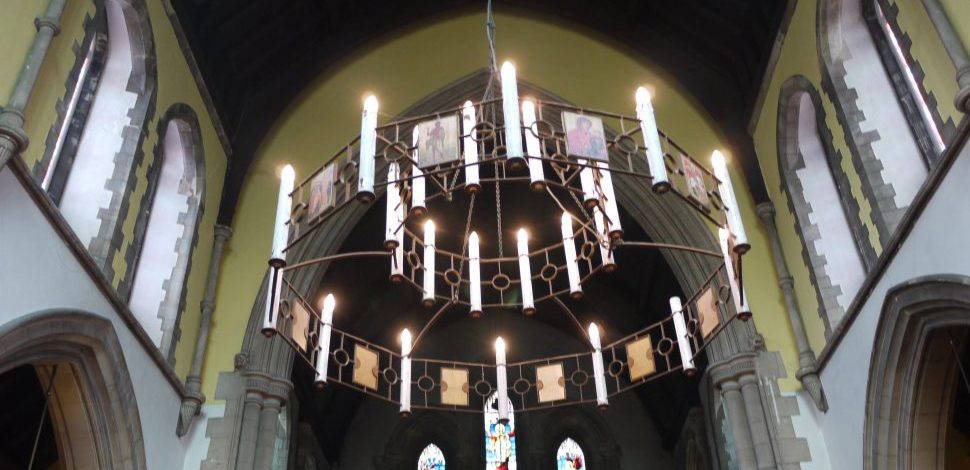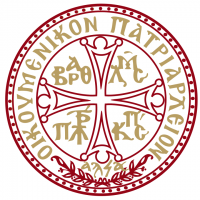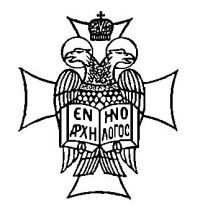To message Archimandrite Kyril or to arrange a baptism or wedding please email the Parish Priest@bristol-orthodox-church.co.uk (Tel. 01179706302 or 07944 860 955).
For more see: CONTACTS

|
Every Saturday: 5.30 p.m. Vespers Every Sunday: 10.30 a.m. Divine Liturgy
WEEKLY SERVICES & INFORMATION (Note: our Parish follows the “New” (Revised Julian) Calendar. For dates on the “Old” Julian Calendar, refer to an online calendar.)
Saturday 19th October. St Demetrius Commemoration of the Departed. 5.30 p.m. Vespers
Sunday 20th October. 17th Sunday After Pentecost. Tone 8 Readings: 2 Cor 16: 19-31 Luke 16: 19-31 NB: Between now and The Great Fast the lectionaries of the different Orthodox local churches differ. This affects the Sunday Epistle (Apostle) and Gospel readings. Our parish follows the more traditional sequence as published online by the Orthodox Church of America (though it is, of course, not “theirs”!). This will not always match, however, the current (and more recent) sequence used by, for instance, the Moscow Patriarchate or of the Great Church of Constantinople.
Saturday 26th October. Great Martyr Demetrius. 5.30 p.m. Vespers
***Festival of Orthodox Arts*** The festival is free to attend will show world class art and icons from the Orthodox You can view the whole program of events at https://www.bath-orthodox
Sunday 27th October. 18th Sunday After Pentecost. Tone 1. St Procla, wife of Pontius Pilate. Readings: 2 Cor 6: 16-7:1 Luke 16: 19-31
FOOD BANK: Amidst our God-given sufficiency, DON’T FORGET THE NEEDS OF OTHERS. Bring contributions please.
|
|
PARISH NEWS **Building update**: The painting of the walls has been completed. We need to clean the windows. Then the scaffolding will come down, a huge clean-up will ensue, and then we move back to our normal arrangement. THANK YOU for your generous donations. Without this, we would not have a space to worship in. We are extremely blessed to have our own space that does not need to be shared with other users. If we look after it, the building will be sure to last a few more hundred years and serve our community for many generations to come. Thank you especially for all the building fund sponsorship of Robert and Lauren’s walk last weekend.
GIFT AID |
|
Some selected saints (AND FEASTS) of the coming days)..
|
******************************************************************************************
For those who wish to donate to our Parish online, our Facebook fundraiser can be found here: https://www.facebook.com/donate/453504039824339/?fundraiser_source=external_url
Sermon for the Fifth Sunday of Luke
Archimandrite Kyril Jenner
Luke 16:19-31
The Parable of the Rich Man and Lazaros, which we read today, is one which was taken up by several of the Fathers of the Church. Saint John Chrysostom preached on this parable on four consecutive days, and even then thought that he had not exhausted what it can teach us. Saint Cyril of Alexandria gave two linked sermons on it.
They agree in pointing out that when our Lord spoke in mocking terms about the rich man, he did not condemn the rich man simply for being rich. He was condemned for the way in which he used his wealth. He looked only for his own pleasure in what he could consume by way of material goods and what he could get by showing off his wealth.
We are told that the rich man “was clothed in purple and fine linen.” (Luke 16:19) He had the most expensive taste in clothes. Purple dye, derived from shellfish, was very expensive, so only the very wealthy could afford it. Wearing clothes dyed purple, therefore, showed off your wealth. “Fine linen” implies that his clothes were made from the most expensive form of linen, and extensively embroidered with silk and gold thread. Again, wearing such clothes showed your wealth.
Saint Asterios, Bishop of Amasea in Asia Minor in the Fourth Century, points out that all we really need for that climate is clothes made from wool in the winter, to keep warm, and from basic linen in the summer, to keep cool. Anything beyond that is extravagance. These basic clothes simply use what God has provided by way of wool clipped from sheep and flax plants that are easily grown, with the fibres converted to cloth with the minimum of processing. (Sermon on the Rich Man and Lazaros)
We find the same extravagance when it comes to food. The rich man “feasted sumptuously every day,” (Luke 16:19) He did not just eat something simple, nourishing, and sufficient every day, with the occasional special meal. He went for the most expensive and elaborate meals possible. Possibly he shared these with a few like-minded friends, but he consumed far more than was necessary.
It could be argued that spending money on expensive clothes and elaborate meals created employment for other people. Buying simple clothes and eating simple meals would create less direct employment, but would open up the possibility of providing additional employment in providing clothes and food for the poor. This was the sin of the rich man. He loved only himself and had no regard for the needs of others, even those close at hand such as the poor man Lazaros at his gate. These were all things that created a barrier between the rich man and God, both in this life and after death.
Lazaros died and went to heaven. He was rewarded, not for being poor, but for being humble. He accepted his position in life. He desired to be fed from the leftovers of the rich man’s meals, but did nothing improper towards fulfilling that desire. He simply got on with his life as best he could. His only friends seem to have been the dogs, who showed their affection for him, recognizing that he shared their lowly status in the world.
This parable is simply a story, and is not to be taken literally. The imagery the Christ used is what would have been familiar to his audience. The story does, however, give us a clear warning.
In this life we are daily confronted with choices. We have to make decisions. Do we show love for God by showing love for our fellow humans? Or do we show a lack of love for God by looking only for what is convenient or comfortable for us? Do we place God at the centre of our lives? Or do we make ourselves the focus of all that we do?
Saint Cyril of Alexandria sums this up: “Come therefore, you rich, cease from transitory pleasure: be earnest after the hope that is set before you: clothe yourselves with mercy and kindness: hold out the hand to those that are in need: comfort those who are in necessity: count as your own the sorrows of those who are in extreme distress.” (Sermon 112 on Luke)
If we follow those instructions of Saint Cyril then we will be following the way of Christ. He came to show us the way of true love for one another. He is also the one who came back from the dead to show us the way to the fullness of life with God. We have to keep seeking to follow that way. Often we fail, but God is merciful and forgives us when we repent. But that repentance needs to be done in this life, and should be part of our daily prayer. Each day we should repent of our sins. Each day we should accept God’s forgiveness. Each day we should make a new start in trying to respond to God’s love for us. This is our life’s work.
Saint Theophylact reminds us: “you … must also understand the moral meaning of this parable: do not be rich in wickedness and overlook your mind which is starved and cast down, although it was created to be borne aloft. Do not let it wander outside, nor let it lie idly on the ground, but lead it within and let it act. Then there will be in you the working of the mind and the spirit, and not merely the feasting of the flesh.” (Explanation of the Gospel according to Saint Luke, Chapter 16)
Let us pray that we may daily heed the message of this parable and grow in our love for God and for one another.
*********************************
Like all small communities we rely on the generosity of friends and well-wishers. If you would like to contribute to the continuation of our parish and the upkeep of our historic church building, you can make a donation here:
https://www.facebook.com/donate/679204386685133/?fundraiser_source=external_url
3




